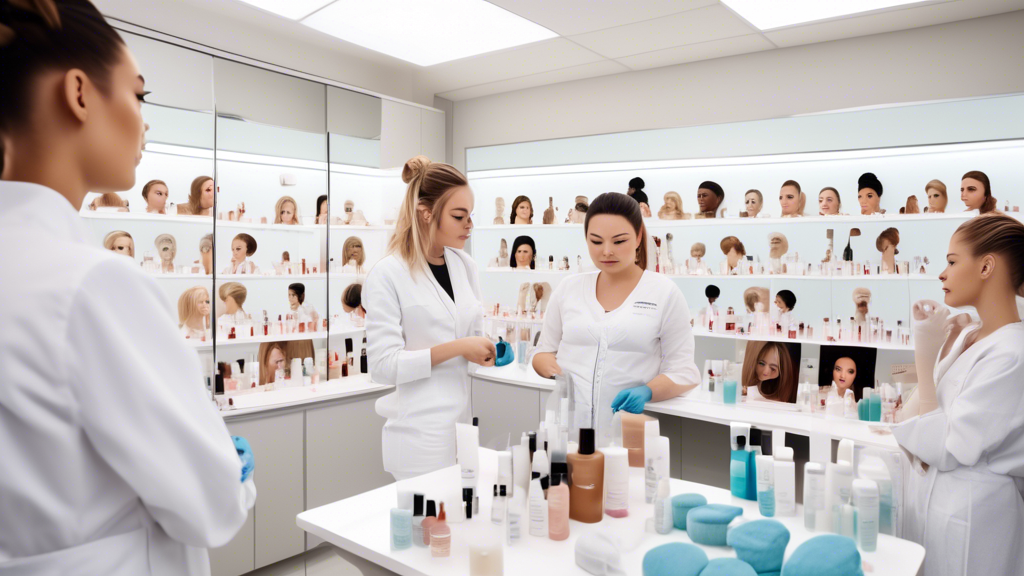Introduction to Esthetician Classes
Esthetics is a branch of cosmetology that focuses on the health and beautification of the skin. As the demand for skincare treatments and specialized skincare products increases, pursuing a career as an esthetician has become an appealing option for many. Esthetician classes are the stepping stones to enter this wholesome and rewarding field. Whether you're considering a career change or looking to expand your beauty expertise, understanding esthetician classes is crucial. This article will delve into everything you need to know about these classes, from curriculum details to certification requirements.
Types of Esthetician Programs
Esthetician programs can vary depending on the educational institution and state regulations. Typically, these programs are offered at beauty schools, technical schools, and community colleges. There are mainly two types of programs:
- Basic Esthetician Program: This program covers fundamental topics such as skincare analysis, facial treatments, hair removal, and makeup application. It is designed for those who are new to the field or looking to start a career as an esthetician.
- Advanced Esthetician Program: Geared towards individuals who have some background in esthetics or those who have completed a basic program, this program delves deeper into specialized treatments like microdermabrasion, chemical peels, and advanced facial techniques.
Curriculum and Course Content
The curriculum in esthetician programs is comprehensive, combining theoretical knowledge with practical skills. Key components typically include:
- Skin Anatomy and Physiology: Understanding the structure and function of the skin is essential. Courses cover topics such as skin layers, cell regeneration, and common skin conditions.
- Facial Treatments: Students learn various facial techniques, including exfoliation, extraction, and mask application.
- Hair Removal: Training includes techniques like waxing, threading, and laser hair removal.
- Makeup Application: Basic and advanced makeup techniques, including color theory and bridal makeup, are covered.
- Chemical Peels and Microdermabrasion: Advanced treatments aimed at improving skin texture and appearance.
- Sanitation and Safety: Emphasis on maintaining a clean and safe working environment to prevent the spread of infections.
- Client Consultation: Effective communication and consultation techniques to assess client needs and preferences.
Practical Training and Hands-On Experience
Hands-on training is a crucial aspect of esthetician programs. Most programs include a significant amount of practical training in a simulated spa environment. This enables students to gain real-world experience by working with clients under the supervision of experienced instructors. Practical training typically involves performing facial treatments, body treatments, and other skincare procedures on live models.
Certification and Licensing
Upon completing an esthetician program, graduates must obtain licensure to practice professionally. Licensing requirements vary by state but generally include:
- Completing a state-approved esthetician program.
- Passing a written and practical examination administered by the state’s cosmetology board.
- Meeting continuing education requirements to keep the license current.
Career Opportunities for Estheticians
Once you have completed your training and obtained your license, various career paths open up in the esthetics field. Potential job opportunities include:
- Skincare Specialist: Providing facial treatments, skincare analysis, and personalized skincare routines in salons, spas, and dermatology offices.
- Makeup Artist: Freelancing or working in salons, theaters, or for cosmetic brands.
- Medical Esthetician: Working alongside dermatologists or in medical spas, performing advanced skincare procedures.
- Sales Representative: Representing skincare and cosmetic brands, providing product knowledge, and helping clients choose the best products for their skin type.
- Spa Manager: Overseeing the operations of a spa, including staff management, client relations, and business development.
Conclusion
Esthetician classes provide a robust foundation for anyone interested in the art and science of skincare. With a mix of theoretical knowledge and hands-on practice, these programs prepare students for various rewarding career paths in the beauty and wellness industry. If you are passionate about helping people look and feel their best, esthetician classes could be the perfect starting point for your new career journey.

